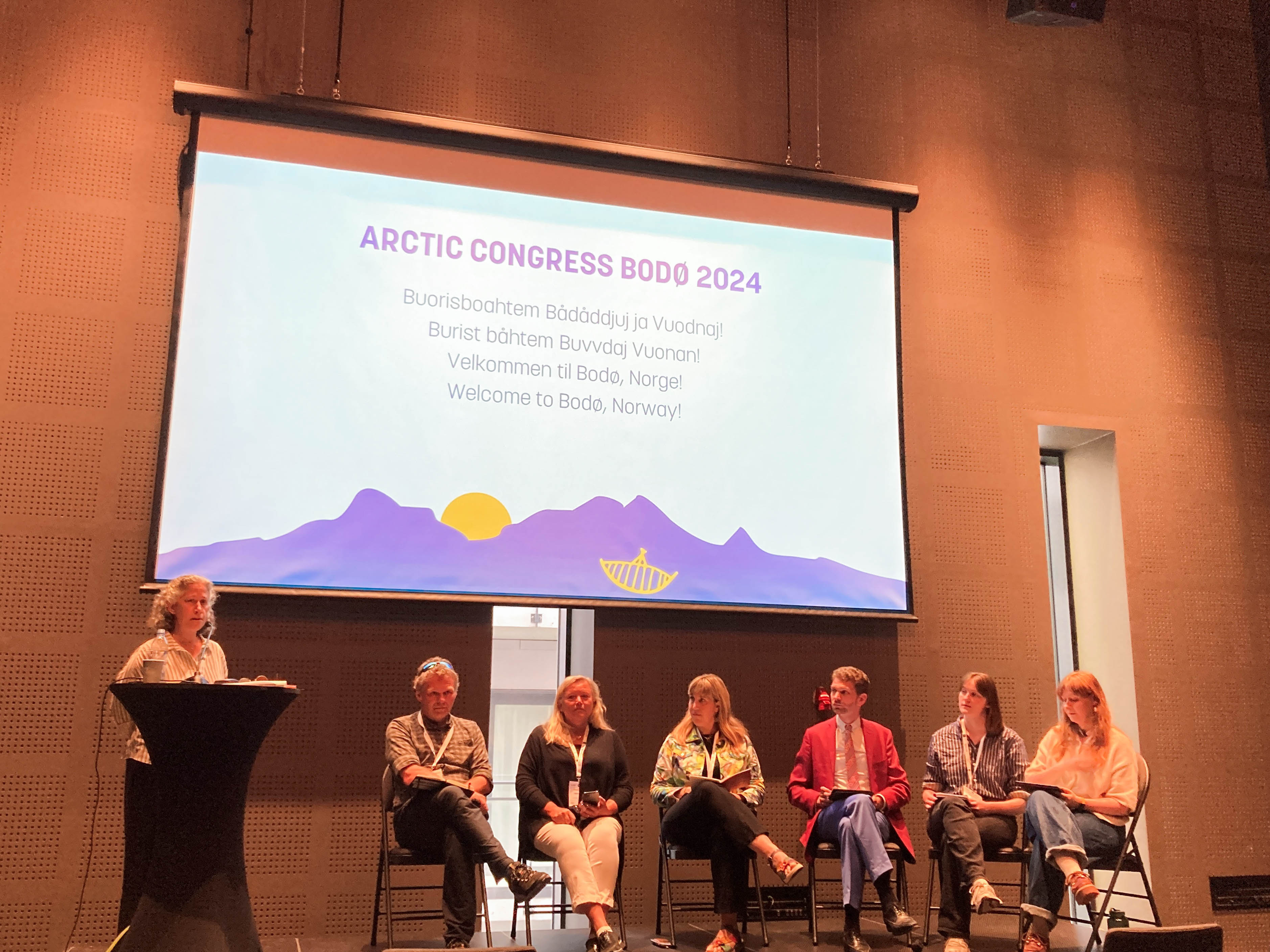Holdmann and de Witt share their expertise at Arctic Congress Bodø 2024
July 24, 2024

Gwen Holdmann and Magnus de Witt, center, were among the panelists to discuss “The social dimensions of energy transition in the Arctic” at Arctic Congress Bodø 2024.
ACEP’s Gwen Holdmann and Magnus de Witt were on a panel “The social dimensions of energy transition in the Arctic” at the Arctic Congress, held May 29-June 3 in Bodø, Norway.
Holdmann pointed out the disparities in energy cost, reliability and the incorporation of renewable resources in the Circumpolar North — extensive Arctic and sub-Arctic regions in Alaska, Canada, Greenland and Russia. The disparities arise from the fact that those regions are not connected to continental grids, in contrast to the European Arctic. She discussed the innovative concept of the “Electric North,” categorizing the energy delivery experience into four groups based on infrastructure and energy access. She emphasized the importance of a comprehensive pan-Arctic dataset that offers a holistic perspective on generation and transmission data at the community level.
With high energy costs to be a significant burden for many remote Arctic communities, de Witt’s presentation focused on the socio-economic impact of electricity subsidies on Arctic communities, using Greenland as an example. In 2018 Greenland introduced unified utility prices, allowing all communities to pay the same price for electricity and water. In addition, the fishery sector received a subsidy to pay even lower rates. De Witt studied the relationship between energy generation method, energy costs and fish processing. He shared his findings that the benefit of the subsidy was not equal among towns and settlements across Greenland.
Arctic Congress Bodø 2024, hosted by Nordland Research Institute and Nord University, was a unique event that combined three conferences — the International Congress of Arctic Social Sciences XI, UArctic Congress 2024 and High North Dialogue 2024 — to discuss impacts of climate change, sustainable development and efforts to enhance the well-being of people living in the region. The social dimensions of energy transition in the Arctic panel was organized by the Svalbard Social Science Initiative.
This ACEP work is supported through the Alaska Regional Collaboration for Technology Innovation and Commercialization program, an Office of Naval Research initiative.


